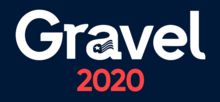I don’t have much faith in electoral politics anymore.
The constant chauvinism tires me, and the establishment bias of our two-party system leaves little room for meaningful change. That said, former Sen. Mike Gravel’s, D-Alaska, presidential campaign revived a dream that a presidential campaign could change something.
Within a week of announcing Gravel’s candidacy, Henry Williams and David Oks, the two teenagers running his campaign, released a Google Doc with his proposed platform along with a straightforward request for feedback and edits from the progressive or socialist community that might support him.
It was crude, unprofessional, rudimentary, and amateurish. And, I fell in love.
The campaign was unabashedly community – and grassroots-oriented. So, I fell back into hopefulness and even suggested my own edits to his platform.
Gravel’s story is one of bravery and agitation.
His most important accomplishment is reading a part of the Pentagon Papers, out loud, in committee. To top off his legendary achievement, once Gravel was too exhausted to continue, he added 4,100 pages of the Pentagon Papers to the congressional record, instantly revealing and forever preserving the evils of the Vietnam War ⏤ at the time, it was unclear whether newspapers would ever be able to publish the leaked papers because of several injunctions from the Department of Justice which halted publication.
Gravel knew when he ran for president in 2020, nearly five decades later, that he wouldn’t win. But his campaign was explicit about its goals from the start: to inject healthy debate into the primary about the U.S.’s murderous foreign policy and to push other candidates leftward on other issues like healthcare and electoral reform.
In the beginning, I didn’t expect much from the campaign. Gravel’s admittedly overambitious plan was to qualify for a debate or two, make some bold statements about foreign policy, and then drop out of the race.
The Democratic National Committee created strict, exclusionary rules for qualifying: 65,000 unique donors or 1% in at least three DNC-approved polls. With nearly 25 major candidates running, these were especially stringent.
As expected, Gravel missed the first debate by a long shot. But as the qualification deadline for the second debate approached, Gravel’s popularity and donations grew exponentially. The days before the deadline were a rollercoaster. I refreshed Gravel’s donor count dozens of times until he hit 65,000.
Gravel officially qualified for the debate. A major anti-war critic on the Democratic debate stage could illuminate the death and destruction of our foreign policy.
The DNC allowed a maximum of 20 candidates on the debate stage. Gravel was one of the last ones to qualify and the July stage was set ⏤ until, a few days before qualification closed, Rep. Tim Ryan passed the polling threshold.
The DNC decided Ryan deserved the spot more than Gravel because it values the polling qualification over grassroots donations. Six candidates in the July debate did not reach 65,000 donors, including Ryan. Half of these candidates had less than 10,000 donors but were allowed to spit their nearly identical talking points while Gravel’s insights were forced to the sideline.
One can only speculate about why the DNC chose to prioritize polling rather than donors, which are a more stable and predictable indicator of actual support.
Gravel had little chance of qualifying because his name wasn’t included in most approved polls, despite having tens of thousands more donors than other candidates whose names were included.
But the issues don’t stop with Gravel.
Rep. Tulsi Gabbard, another candidate critical of America’s foreign policy consensus, won’t be on stage Sept. 12 because she didn’t reach the threshold in four DNC-approved polls. She did, however, reach at least 2% in dozens of credible polls that the DNC decided not to count for debate qualification.
The DNC’s policy is clearly and purposefully restrictive.
Were some polls specifically excluded to push Gabbard out of the September debate? Though we don’t know for certain, it wouldn’t be out of character for the DNC.
The Democratic party’s establishment bias is well-documented, especially after it was revealed that the 2016 Clinton campaign essentially picked the DNC’s personnel in its research and communications departments. Similarly, we’re only six months out from the Democratic Congressional Campaign Committee ⏤ the organization tasked with organizing fair congressional primaries ⏤ announcing it would blacklist any vendor working for a primary campaign that challenges a Democratic incumbent.
Gabbard summed up her thoughts in a recent interview.
“The whole process lacks transparency,” she said. “If they’re not transparent with their process … it creates a lack of trust in Democratic voters that the DNC is actually working for their interest and creating a very fair and transparent process. When you’ve got a lack of trust, you’ve got people who wonder whether or not they should be involved at all.”
I only partially disagree with Gabbard here: The DNC has been transparently establishment-oriented and unwilling to challenge its rightward lurch that occurred between the Reagan and Obama years.
With disappointment after disappointment, it really does leave me wondering whether I should be involved at all.

